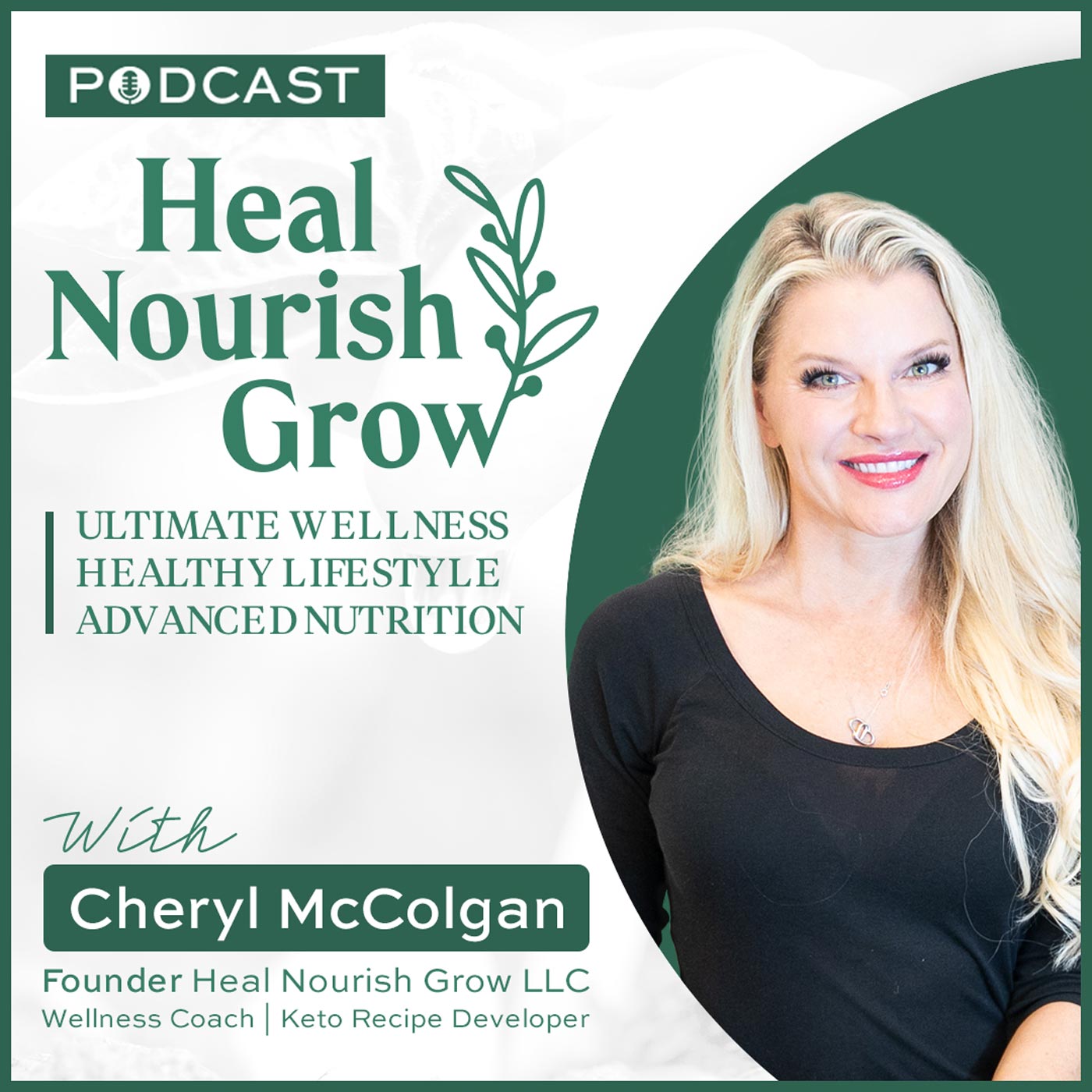Using Neurofeedback Tools for Peak Performance and Neurodegenerative Diseases
Description
In this episode, I chat with Guy Odishaw about using neurofeedback. He has such an amazing amount of knowledge! It was fun to learn more about how these tools can help not only improve a normal aging brain but also help neurodegenerative diseases and traumatic brain injury.
Visit Guy at CerebralFit.
Watch the interview on YouTube
Automated transcript, please forgive errors.
Cheryl McColgan (00:01.034)Hey everyone, it's Cheryl McColgan, founder of HealNourishGrowth, and we're back with another episode of the podcast. Today I am joined by Guy Odisha, and I am really excited to chat with him, particularly because you know about my love of all things, brain health, my background in psychology, and neuropsychology, and Guy actually is a neurofeedback practitioner.
and he has a lot of really great expertise he's gonna share with us today. So welcome, Guy. And if you could just start by sharing a bit of how you got into this work and what is actually neurofeedback for those who might not know what that is.
Guy Odishaw, CerebralFit (00:38.417)Well, thank you for the opportunity to be here and chat with you. It was a delight so far. It's been great. The little pre-show check-in was wonderful. So my background, so I've been practicing for a little over 30 years, mostly in the area of what's called integrative manual therapies. So that's my kind of my main orthopedic side, a lot of chronic pain and trauma. And…
Cheryl McColgan (00:45.855)Yes.
Guy Odishaw, CerebralFit (01:01.605)Then slowly that moved into doing what's generally bioelectric medicine. So things like microcurrent light therapy.
Guy Odishaw, CerebralFit (01:13.425)pulse magnetic therapy, things of that nature. So we've moved into the spectrum of bioelectric medicine. So that's been for about 12 years. And then I would say the last six years been more focused on the brain with neuroimaging, neurofeedback, neuroSTIM. And we'd use quite a bit of bioelectric medicine in our brain health clinics, but they just changed the name.
when you do it on the body versus you do it in the head, they give it a new name. So nothing really changes in terms of the technology, but the name changes. And so, yeah, that's, you know, I kind of consider myself a psychophysiologist kind of working on the brain side of the brain mind continuum. And then, go ahead.
Cheryl McColgan (02:01.758)I was just going to say what type of things do people usually come to you for? You mentioned chronic pain, but now you're moving more into the brain stuff. Are you more dealing with traumatic brain injury or just kind of natural aging processes or what is it that people are most seeking out help for?
Guy Odishaw, CerebralFit (02:19.485)Sure. So I have three main clinics. I have five clinics, but three clinics that are brain specific. So in my one clinic, Bakhti Brain Health Clinic, we're a little more omnivorous. So we're seeing a full range of mental health. So anxiety, depression, OCD, you name it, you know, in the across. So mental health. Then I would say probably our next biggest
Children, learning disability, we kind of put ADHD in with learning disabilities just because it doesn't have a great place to go otherwise. So it might be dyslexia, dyscalculia, just slow reading, and anything that comes up in the school side, academic side. And then again, we put ADHD in there. And then traumatic brain injury, we do a fair amount of traumatic brain injury.
And that can be anywhere from kind of serious that gets the TBI down to say, post-concussion syndrome, which is a less significant injury, but not necessarily less impactful on the person who has it. Just the nature is quite a bit different than that spectrum. Um, and then peak performance. So we do a lot of peak performance. So people who don't have a problem, they just want to be better at whatever they're doing. So maybe that's executives. Um,
We have some students,
More Episodes
In this episode of the Heal Nourish Grow podcast, I share my journey of returning to strength training after a long hiatus. The importance of strength training for longevity and health span, the benefits of starting at any age, and how to overcome common barriers to consistency are topics in this...
Published 11/13/24
Published 11/13/24
In this conversation, Dr. Victoria Williamson discusses the profound impact of music on the brain, exploring its role in memory, emotional connection, and cognitive enhancement. She highlights the significance of music from infancy through adulthood and introduces the concept of binaural beats as...
Published 10/30/24


